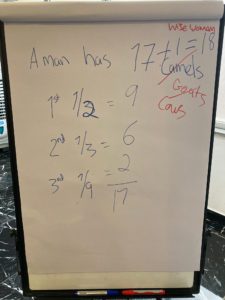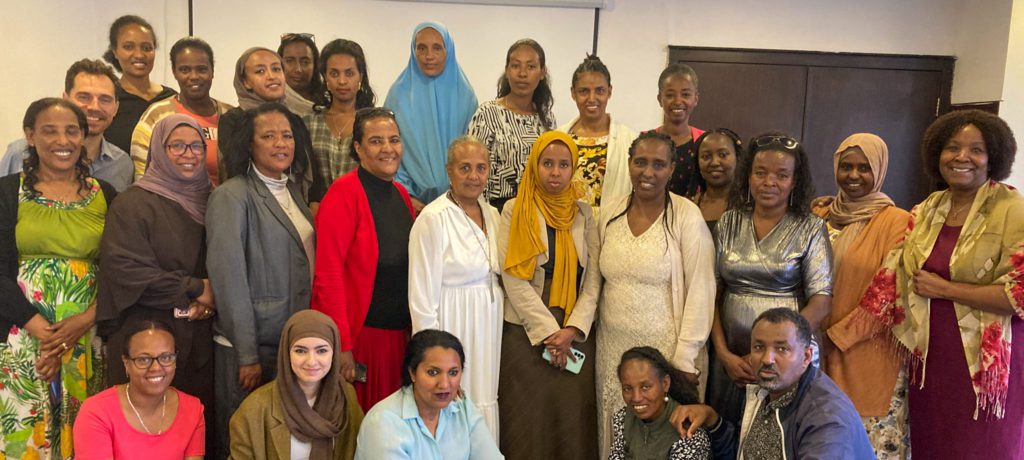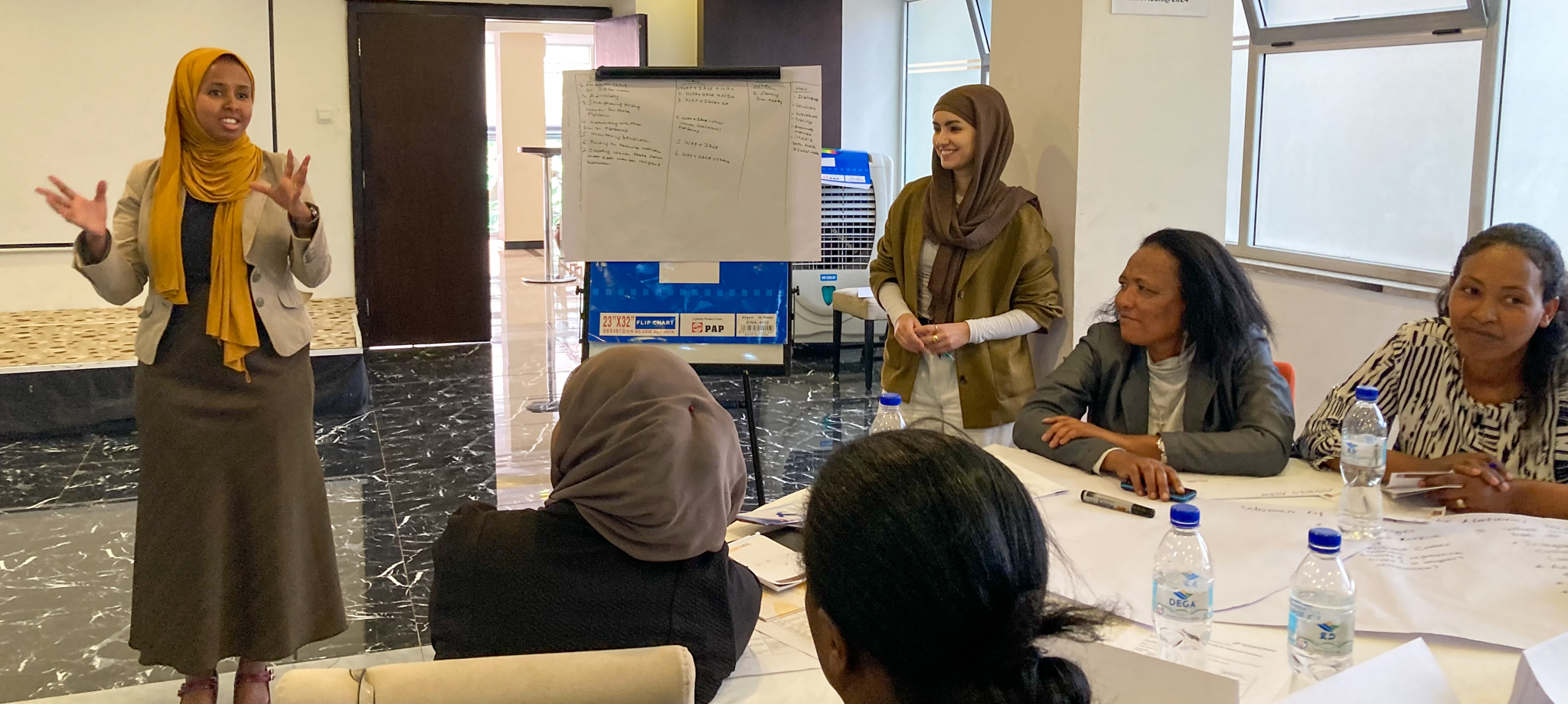Embarking on Peacebuilding: First-time Facilitating Women of Faith in Ethiopia
As a part of growing our internal capacity as peacebuilders, junior staff members are invited to join more senior staff to gain hands-on experience with peacebuilding. Read here our Peace Process Support and Research Assistant Qabas al-Musawi reflect on her recent experience with first-time facilitation.
In early March, I was invited to co-facilitate the ‘Empowering Women of Faith’ workshop in Ethiopia, a role that deeply resonated with me as a woman of faith. I found the prospect of participating in a space that empowers women religious leaders to realise and fulfill their role as peacebuilders very exciting. The trip also served as my inaugural visit to Ethiopia and only second to Africa, offering a chance to explore a new destination and immerse in a distinct culture very different from my daily reality.
Going into it, I had a vague idea of what facilitation meant. I was only familiar with the term from hearing my Peace Process Support colleagues recount their experiences and insights during team meetings. But despite this, I had yet to fully comprehend the depth of its significance. Achieving a genuine understanding of facilitation necessitated direct involvement and first-hand experience.
For the three-day workshop with the ‘Women of Faith’ network representing Ethiopia’s diverse religious landscape, which included Catholic, Orthodox, Seventh-Day Adventist, and Muslim leaders among others, we crafted a preliminary plan outlining each day’s agenda, the evidence from our research, and our overarching objectives in engaging with these women. However, the term ‘adaptive’ came up frequently throughout our discussions. We needed to remain flexible and open to last-minute adjustments to ensure the flow and efficacy of the workshop. For one particularly memorable instance, we found ourselves grappling with the women on the monumental decision of which animal to use in an exercise.

We decided to switch from a camel to a goat and eventually settled on a cow, all in the pursuit of aligning with Ethiopian cultural contexts. Ah, the trials and tribulations of workshop facilitation!
On the first day of the workshop, I observed my colleague Rainer Gude utilise his skills and wealth of experience in facilitation to transform the dynamic of the room from an atmosphere of apprehension and blank expressions into a safe, welcoming, and inclusive space for the women participants. Establishing a rapport with the women through small talk and plenty of jokes before diving into the workshop agenda aided greatly
in that. But also maintaining a supportive and positive tone throughout the workshop, not just for the participants but between the facilitators too, really set the stage for a constructive and enjoyable learning experience for all of us.
Stepping into the role of facilitator meant taking the responsibility of guiding discussions and fostering collaboration. As someone who has always preferred not to be at the center of attention, I expected to be much more nervous and apprehensive about commanding a space that I was not used to. But I surprised myself with how easy and almost natural it was to assume that role. That was largely due to seeing how the women engaged with the material we presented the day before and witnessing their enthusiasm and conviction grow throughout the session.
What was obvious was that these women had a lot to say and that they were keen to be heard. What was just as obvious, was that they hail from a society that is not always particularly interested in listening to them. The women expressed that they believed they bring a richer and different perspective to peace talks but they are often sidelined and their ideas are dismissed, which is why a space like this was so important to them. Ethiopia, like many societies, has elements of patriarchy within some of its cultural and traditional practices where men hold more power and authority than women. I was therefore eager beyond any feeling of apprehension, to step into the role as I knew how important it was for these women to have someone there to guide the conversations they were so keen to have and to help make them feel comfortable sharing their thoughts and ideas without fear of judgment.
As the workshop progressed, the women increasingly recognised that they were indispensable to peace, and that is what I found most rewarding. Seeing how empowered they became simply from sharing the space with other like-minded women, being given the freedom to speak, and perhaps most importantly, heard.
On the last day of the workshop, one of the women said “I now understand that peace starts here” as she pointed at her heart. One recurring analogy used by the women when speaking to each other was the ‘home’. The home was used to contextualise and to help each other realise what being a woman peacebuilder looks like, and that actually, it is a role they are all too familiar with and already play as mothers, wives, and sisters.
It was inspiring to witness them reclaim titles that are often used to pigeonhole and marginalise women and leverage them to their advantage. They recognised that these roles had equipped them with the resources and skills necessary to thrive as peacebuilders.
Ethiopia is a deeply religious society and tolerance and co-habitation are extremely important values to its peace and prosperity. There was a strong desire to continue these spaces of collaboration and meet more women of faith, to find strength and motivation in each other’s stories and experiences, and to work together to become active, not just passive, peacebuilders. As well as a desire to break down the patriarchal barriers placed on them in the home, society, and religious institutions.
By the end of the three days, the collective hope was for peace and love to prevail. I left the workshop and the country feeling energised and inspired to continue the work I do. For the first time in my career, I was seeing the tangible impact of our work on real people, in real time. This experience has reinforced my dedication to promoting peace and empowerment and reaffirmed the significance of our work in fostering positive change.


